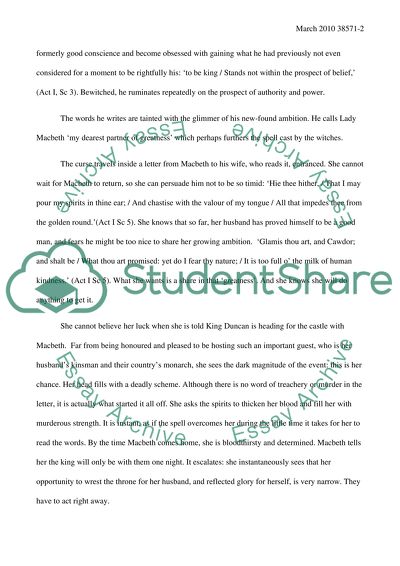Cite this document
(“Lady Macbeth is the real driving force behind the murder of Duncan Essay”, n.d.)
Lady Macbeth is the real driving force behind the murder of Duncan Essay. Retrieved from https://studentshare.org/miscellaneous/1564236-lady-macbeth-is-the-real-driving-force-behind-the-murder-of-duncan-discuss-this-statement-and-decide-whether-or-not-you-agree-1000-words
Lady Macbeth is the real driving force behind the murder of Duncan Essay. Retrieved from https://studentshare.org/miscellaneous/1564236-lady-macbeth-is-the-real-driving-force-behind-the-murder-of-duncan-discuss-this-statement-and-decide-whether-or-not-you-agree-1000-words
(Lady Macbeth Is the Real Driving Force Behind the Murder of Duncan Essay)
Lady Macbeth Is the Real Driving Force Behind the Murder of Duncan Essay. https://studentshare.org/miscellaneous/1564236-lady-macbeth-is-the-real-driving-force-behind-the-murder-of-duncan-discuss-this-statement-and-decide-whether-or-not-you-agree-1000-words.
Lady Macbeth Is the Real Driving Force Behind the Murder of Duncan Essay. https://studentshare.org/miscellaneous/1564236-lady-macbeth-is-the-real-driving-force-behind-the-murder-of-duncan-discuss-this-statement-and-decide-whether-or-not-you-agree-1000-words.
“Lady Macbeth Is the Real Driving Force Behind the Murder of Duncan Essay”, n.d. https://studentshare.org/miscellaneous/1564236-lady-macbeth-is-the-real-driving-force-behind-the-murder-of-duncan-discuss-this-statement-and-decide-whether-or-not-you-agree-1000-words.


